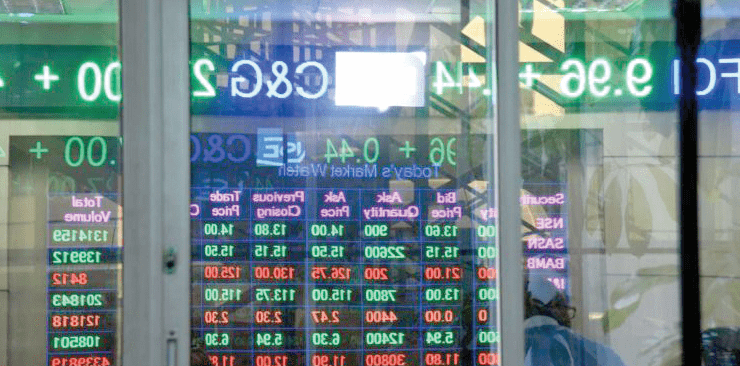Investor’s paper wealth reaches Ksh2.07 trillion

Investors at Kenya’s Nairobi Securities Exchange (NSE) witnessed a remarkable surge in wealth over the past year, fueled by a sustained rise in the prices of blue-chip stocks.
Market data released by the NSE on Wednesday revealed that market capitalization, a key indicator of investor wealth, reached Sh2.07 trillion (approximately $15.98 billion) in January 2025.
This marks a significant increase from $10.8 billion recorded at the start of 2024, representing a 48 per cent growth — the highest in two years.
The rally at the NSE has been driven by strong performance in key sectors, including telecommunications, banking, insurance, and energy. Stocks from major players such as Safaricom, Equity Group, and KCB have recorded substantial price gains, reflecting renewed investor confidence.
Safaricom, which remains a bellwether stock at the NSE, saw its share price rise by over 50 per cent during 2024, due to robust earnings, expansion into regional markets, and its foray into financial services through M-Pesa.
Similarly, leading banks like Equity Group and KCB posted impressive results, prompting a surge in their stock prices and contributing significantly to the overall growth in market capitalization.
The All Share Index (NASI), a broader measure of market performance, also reflected this optimism. As of Wednesday, it closed at 131.73, marking one of the highest levels seen in recent years. This rally has positioned the NSE as one of the top-performing frontier markets globally, delivering the best returns to investors since 2010.
The NSE’s resurgence is attributed to the Central Bank of Kenya’s decision to reduce its benchmark interest rate from 14 per cent to 11.25 per cent which has played a pivotal role in attracting investors back to the equities market.
Lower lending rates
Lower interest rates made government securities less attractive, prompting both institutional and retail investors to seek higher returns in the stock market. The banking sector, in particular, benefitted from this policy shift, as reduced borrowing costs spurred business activity and improved earnings for listed financial institutions.
The inclusion of three NSE-listed companies in the Morgan Stanley Capital International (MSCI) Frontier Markets Small Cap Index in November 2024 also boosted investor confidence in the country.
This was a significant achievement by NSE Chief Executive Officer Frank Mwiti, who is expected to drive capital inflows into the market as global funds tracking the MSCI index increase their exposure to Kenyan equities. The move not only elevated the global visibility of the NSE but has also underscored its potential as a gateway for frontier market investments in East Africa.
Experts say that beyond the macroeconomic and policy-driven factors, the NSE’s growth has also been supported by improved corporate governance and stronger financial performance among listed firms. The capital Markets Authority (CMA) reports say many companies implemented cost-cutting measures, adopted innovative business models, and diversified their revenue streams to navigate economic challenges. CMA confirmed that “most of listed companies recorded significant improvement in the annual weighted overall governance score of issuers”.
For instance, the energy and petroleum sector has benefitted from rising global oil prices, which bolstered the earnings of firms like KenGen and TotalEnergies Kenya, driving up their stock valuations.
While the gains at the NSE are undoubtedly significant, they also raise questions about sustainability. This has seen some analysts caution that the rally could lead to overvaluation in certain segments of the market, particularly among high-performing blue-chip stocks.
Retail investors have also played a notable role in the market’s recovery. With the rise of digital trading platforms and increased financial literacy, more Kenyans have gained access to the NSE, further boosting trading volumes. This democratization of stock market participation has been crucial in driving liquidity and ensuring broad-based growth across different market segments.














